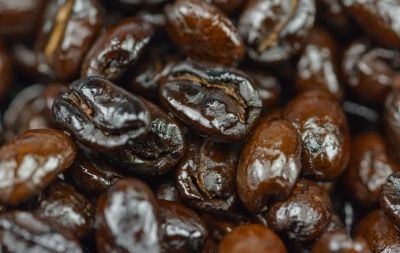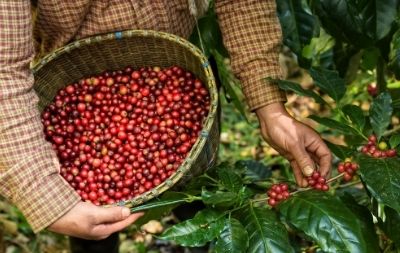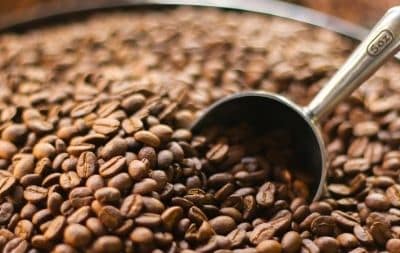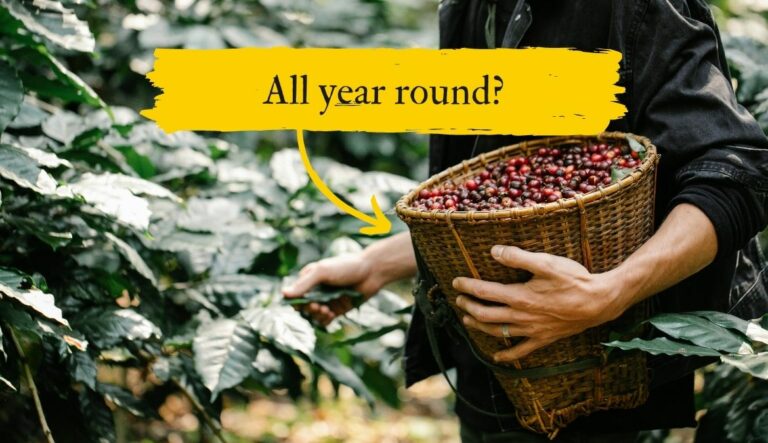You can reduce a coffee’s sweetness by adding less sugar, adding lemon or lime juice, using a darker roast, or buying washed coffee. These methods will reduce both the concentration of sugar and naturally occurring sweetness found in coffee beans.
This article shares a few useful tips when preparing and buying your next coffee to lower the sweetness a bit.
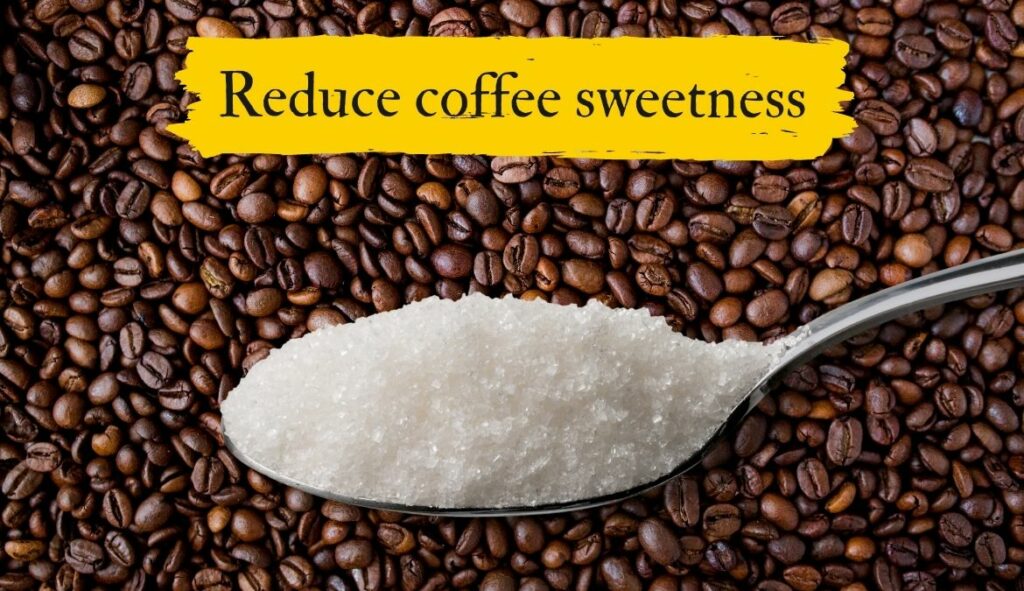
Why is my coffee so sweet?
Coffee may be sweet if sugar or sweetener is added after brewing, artificial flavors are added during roasting, it is a light roast, or it is naturally processed. The first two methods involve artificial sweetening, while the latter two occur naturally inside the coffee beans.
You added too much sugar
The most obvious reason your coffee may be too sweet is if you simply dissolved too much sugar into your beverage. It’s common to put 2-3 sugar cubes into a standard 300ml cup of coffee, which works out to about 8-12 grams of total sugar.
A teaspoon of coffee is about the same as a sugar cube with 4 grams of sugar. And 3 teaspoons (or 12 grams) is equivalent to 1 tablespoon of sugar.
You can add as much sugar as you want, but you may consider adding about this amount if you’re trying to reduce the sweetness of your coffee.
You are using flavored coffee beans
There is a category of coffee beans that are artificially sweetened by soaking beans in syrup. These types of coffee often come in flavors such as French vanilla or gingerbread during the holidays.
If you’re using one of these flavored coffee, consider trying a normal and unsweetened brand to reduce the sweetness.
You are using a light roast coffee
Light roasted coffee contains a higher concentration of natural sugars. These sugars, which are present in fairly small concentrations, react with proteins inside the bean during the coffee roasting process, which is what gives coffee some of its pleasant aromas and flavors.
Some of these natural sugars remain in light roasted coffee because they have not had a chance to convert during the roast. As a result, light roasted coffee can sometimes give a slightly sweet taste.
Try lowering the sweetness by purchasing a darker roast.
You are using a naturally processed coffee
Naturally processed coffees are dried inside the coffee cherry after being harvested. They sit and ferment inside the coffee cherry’s fruit flesh and absorb more natural sugars than they would with a washed processing method.
This causes naturally processed coffees to taste fruity and even floral. Consider buying a washed processed coffee instead if this is true for you. These coffees are immediately removed from the coffee cherry after harvest and tend to taste less sweet.
What to add to coffee to make it less sweet?
Consider adding a splash of lemon or lime juice to make your coffee less sweet. Sweetness and sourness have roughly the same taste threshold, which is why they work as effective additives to reduce the intensity of each other.
Add lemon or lime juice
Adding too much lemon or lime juice will likely make your coffee taste worse. It’s certainly not the most common additive to try and enhance a coffee’s flavor. But in a pinch you may be able to slightly improve your coffee by reducing the sweetness a bit.
Do not add salt
Sweet and salty flavors are commonly associated with each other and believed by many to cancel each other out. The truth is that salt tends to enhance the sweetness of a food or beverage when added in moderation.
High salt concentrations can help to lower sweetness but this would cause your coffee to taste awful.
Is coffee meant to be sweet?
Coffee is meant to be enjoyed as sweet as you want it. Some people prefer little to no sweetness, while others prefer adding sugar and other sweeteners. Coffee contains a small amount of natural sugar, which is usually converted into other flavor compounds during the roasting process. But beans often have a non-sugary sweetness to them.
These naturally sweet flavors are often expressed as fresh fruit flavor, cooked fruit flavors or tropical fruit flavors. Many coffees also contain sweet flavors such as caramel, vanilla and chocolate.
However, these flavor notes do not taste like the same kind of sweetness as a teaspoon of sugar might. But certain coffee beans can produce fairly strong aromas and flavor compounds that might give you the impression that it’s very sweet.
Is there a naturally sweet coffee?
Coffee beans contain natural sugars but the amount varies depending on the species of bean. Aarabica beans have a higher sucrose content, which is likely a reason why it’s more frequently used and considered higher quality than robusta[1].
Coffee beans undergo the Maillard reaction when being roasted. This is where sugars and proteins react with each other to brown the food and produces many of the pleasant aromas and flavors we enjoy in coffee.
This is why sugar plays an important role in producing good tasting coffee.
What coffee is the sweetest?
Mexico, El Salvador, Peru, Panama, Nicaragua, and Guatemala tend to grow naturally sweeter tasting coffee because they are grown in regions with more shade. But there are many artifically sweetened coffees that are soaked in syrup flavors that can be purchased from some grocery stores.
Coffee grown in partial shade or lower intensity light have been proven to contain higher concentrations of sugar, chlorogenic acids, trigonelline and fats[1]. Specifically, 50%-60% shade is most effective for increasing the concentration of these compounds responsible for adding natural sweetness to coffee.
Additionally, light roasted coffee that is dry processed (naturally processed) from these regions tends to produce the sweetest, most fruity flavors without adding other sweeteners or sugar.
References
- Somporn, C., Kamtuo, A., Theerakulpisut, P., & Siriamornpun, S. (2012). Effect of shading on yield, sugar content, phenolic acids and antioxidant property of coffee beans (Coffea Arabica L. cv. Catimor) harvested from north‐eastern Thailand. Journal of the Science of Food and Agriculture, 92(9), 1956-1963.

